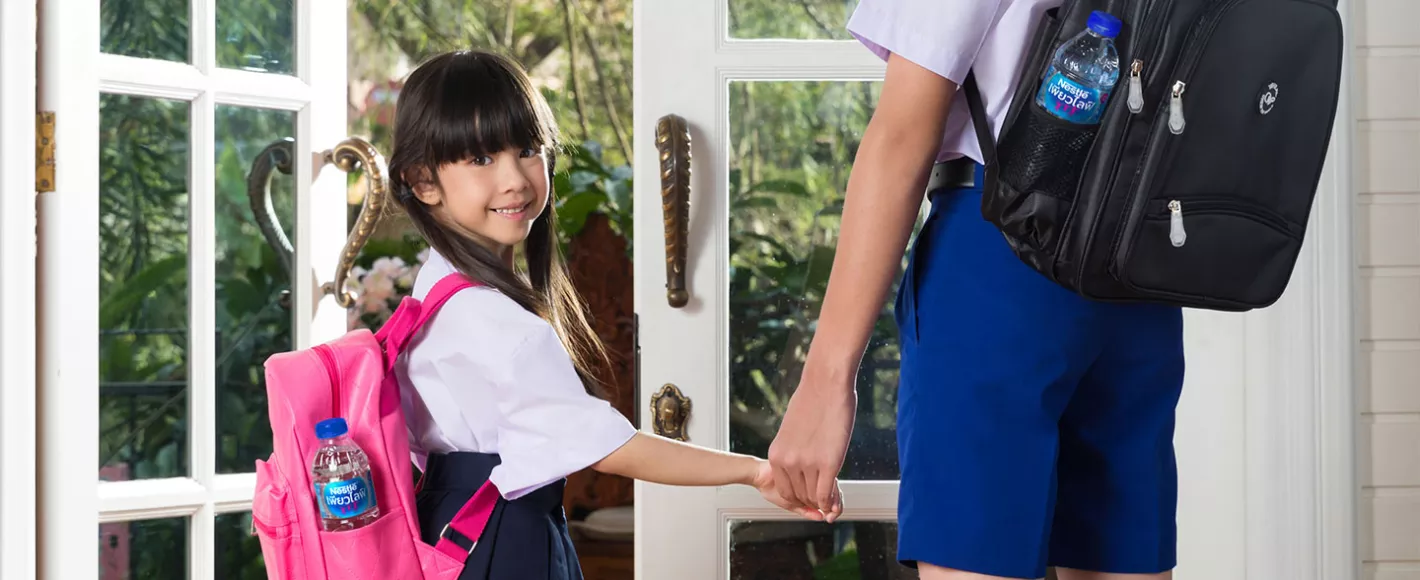
Kids run on water
Imagine what a typical school day is like for your children... They never stop! Make sure they start their day well, a glass of water before going to school. Just like healthy eating, good hydration habits that are established in early life are generally retained into adulthood. Plain water has no calories or additives, it is tooth-friendly and is widely accessible.
Are your kids drinking enough water throughout the day?
It has been shown in a 14-day study looking at patterns of water consumption in the UK that of the children surveyed aged 11-12 years only 6.1% drank water in the morning or sipped water during the day. Most (24.4%) drank water at lunchtime or in the afternoon (33.5%), indicating that children may not drink enough water in the morning1.
UK study source
1 Derbyshire EJ (2012) An intervention to improve cognition and hydration in UK school children using bottled water. Complete Nutrition 12(2), 18-20.

Dehydration risk
Young children are particularly vulnerable to dehydration, as their water needs are proportionately higher than those of adults: their surface-to-mass ratio is relatively greater than those of adults and because of this, they lose more water through their skin.
Keep kids well hydrated
It's essential that your child adopts healthy habits from an early age by drinking water at home, at school and at any other moment when you are not with them. It doesn't always occur to kids to drink water, even if they feel thirsty. Compared to adults, kids' water needs are higher. And the more you remind and encourage your children to drink water, the more staying hydrated becomes second nature.
Tips to help your kids drink water

Stay well hydrated
Encourage them to drink a glass of water when they wake up, or even during the night.

Carry it
If possible, send them to school with water by putting a bottle in their school bag, sports bag, or lunchbox.

Create habits
Place bottles of water in accessible places: on the dining table, in the fridge, on their desk, on the bedside table, etc.

We’re made out of water.
Water represents about 60% of an adult's average body weight.

Get your 1.5L a day
Why 1.5L of water a day? Discover the science behind the figures.
EFSA Journal 2010; 8(3):1459
